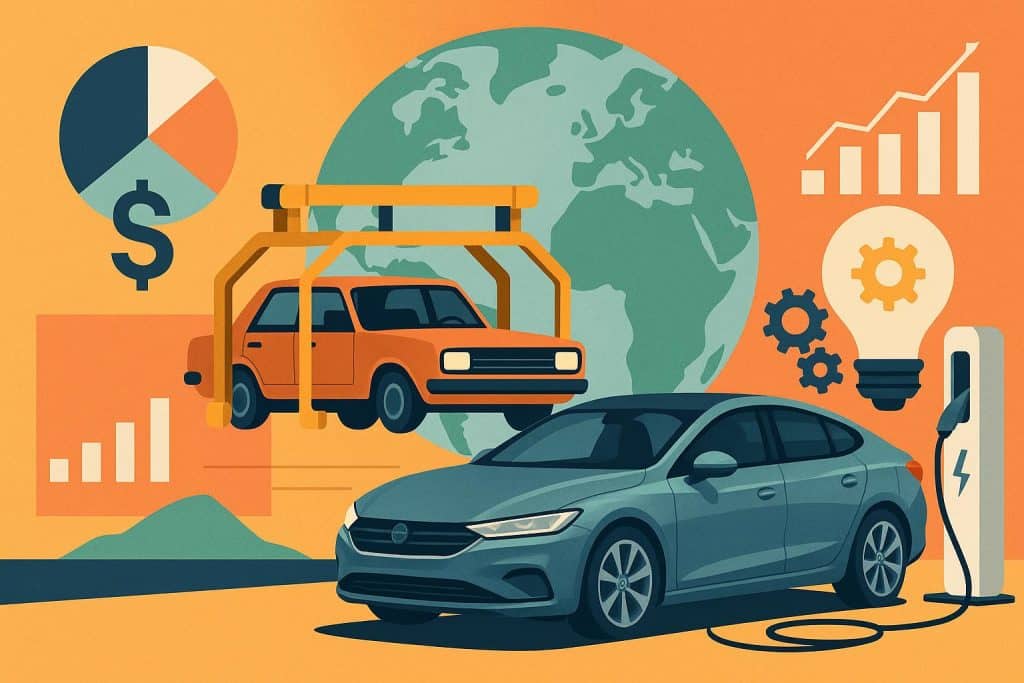The automotive industry has always been a symbol of innovation, representing how engineering and design can shape daily life and global economies. From the invention of the assembly line to the current push toward electric vehicles, cars have continually evolved to meet cultural, environmental, and technological demands. In the past, owning a vehicle was primarily about mobility and independence, but today it also reflects personal identity, environmental consciousness, and financial planning.
Modern cars are more advanced than ever, featuring integrated computer systems, AI-powered safety features, and connected technologies that make driving both safer and more efficient. Yet with these advances comes a greater responsibility for owners to maintain their vehicles properly. Regular maintenance, timely repairs, and access to quality auto parts have become essential for extending the life of a car and ensuring it performs to its full potential. This shift has given rise to an ecosystem where automotive care is not just a mechanical process but an informed and proactive lifestyle choice.
Technology has redefined the way consumers approach vehicle ownership and repair. In the past, car maintenance often required in-person visits to dealerships or specialized mechanics with limited availability of parts. Now, digital platforms and e-commerce solutions allow drivers to research, compare, and purchase parts with unprecedented ease.
Online tutorials, mobile apps, and community forums empower individuals to take on do-it-yourself projects that once felt out of reach. This democratization of knowledge and access has created a generation of car owners who are more hands-on, informed, and confident about managing their vehicles. It has also fueled a broader culture of sustainability, as repairing and maintaining cars properly reduces waste and helps mitigate the environmental impact of premature replacements. Digital integration has further accelerated efficiency in supply chains, ensuring that parts are delivered quickly and reliably. Whether through predictive maintenance alerts or AI-driven diagnostics, technology continues to empower drivers with tools to stay ahead of problems, saving time, money, and frustration.
Affordability remains one of the most critical factors in automotive care, as vehicle expenses often rank among the largest household costs. Consumers seek ways to balance quality with budget-conscious decisions, and online platforms offering promotions and discounts have become indispensable in this regard. For example, using an AutoZone discount code enables drivers to purchase reliable parts and accessories at reduced prices while maintaining confidence in their authenticity. AutoZone has built a reputation as a trusted provider of automotive products, offering everything from batteries and brakes to cleaning supplies and diagnostic tools.
Promotions make these essentials more accessible, ensuring that car ownership does not become an overwhelming financial burden. Discounts are not simply marketing strategies; they represent practical solutions that empower drivers to extend the lifespan of their vehicles while staying within budget. By aligning affordability with quality, discount platforms allow drivers to make smarter, more sustainable choices that reinforce both financial stability and long-term satisfaction with their cars.
Looking forward, the future of automotive care will be shaped by a blend of sustainability, innovation, and consumer empowerment. Electric vehicles are already redefining maintenance needs, with fewer moving parts but new requirements for battery care and charging infrastructure. Autonomous driving technologies will introduce different demands for software updates, cybersecurity protections, and advanced sensor calibration.
At the same time, sustainability will play an increasingly central role, with greater emphasis on recyclable materials, circular economies, and eco-friendly repair practices. Consumers will expect brands to provide not only reliable products but also transparency and accountability in their production and sourcing. Platforms that integrate affordability, innovation, and accessibility will be key to meeting these expectations, ensuring that everyone can participate in the future of mobility.
Whether maintaining a traditional car or adapting to the next generation of electric and autonomous vehicles, drivers will rely on a combination of digital tools, sustainable practices, and smart purchasing strategies to stay ahead. Automotive care is no longer just about keeping a car running—it is about making informed choices that align with personal values, financial goals, and a shared responsibility for the planet.
